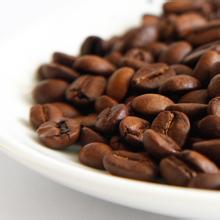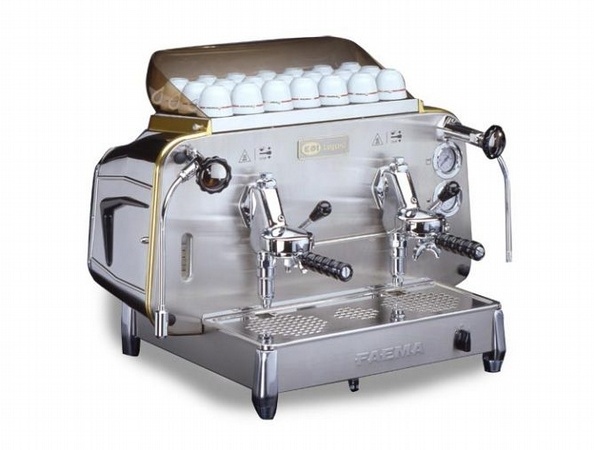How does the temperature of the water for brewing coffee affect the optimum temperature for coffee flavor and coffee brewing?

Um... (contemplative) Eggs feel that this problem can not be solved by temperature, but temperature is indeed a part of the impact, and can not be separated from others.

It is true that the temperature of the water affects the extraction of coffee juice, but the reason why it is good or bad cannot be attributed to the temperature of the water, but to the fact that the brewer does not know anything about coffee. As the saying goes, "it is not the knife, but the person." water is just a tool to be used.
Brewers had better have a certain degree of understanding of coffee itself (through the accumulation of their own experience or information in books). According to its variety and origin, there will be differences in flavor, and its baking degree determines the promotion and retention of flavor. Then synthesize the above two points, and then according to the size of its ground beans to determine two points:
The level of "brewing water temperature" and the length of "brewing time"
Only in this way can we really solve the problem of coffee extraction!

Let me give another example to dispel everyone's myth about temperature: "Ice drop Coffee" is completely cold-extracted coffee, this kind of coffee can also achieve the purpose of extracting coffee juice by soaking in cold water for a long time, so I get a concept: the lower the water temperature, the longer the soaking time to extract reasonable coffee juice.
From a scientific point of view, roasted coffee beans can be magnified under a microscope to see numerous fibrotic holes in which coffee essence is attached, and under the immersion of water, the essence and water are mixed out.
And I once read a Japanese experimental report that it grinds coffee beans to a very fine degree, and each coffee powder is even smaller than a small hole (that is, there is no hole). After soaking in water, the effect of extraction is very poor, so blindly pursuing fine powder is not the best way, and it is easy to coke in coffee because it is too fine to encounter high temperature.

The relationship among water temperature, coffee thickness and soaking time can achieve the best performance through the accumulation of knowledge and experience, so why do we always see hand baristas smell and touch coffee after they get the coffee?

It is recommended that beginners master
First, for thicker bean powder, the soaking time can be longer; otherwise, it will be shorter.
Second, if the water temperature is high, the beans will be thicker and the soaking time will be shorter.
Third, the water temperature is low, the beans are ground finer, and the soaking time is longer.
Fourth, shallow baked beans are finer than deep-baked beans, with good taste and extract a little more regional flavor of beans.
According to my suggestion at four o'clock, the beans are not easy to scorch, the flavor of the beans is easy to highlight, and the failure rate is lower.
Even if you say to the above, the low water temperature should not be lower than 75 degrees, and the high water temperature should not be higher than 95 degrees, preferably.

(PS: the control of soaking time depends on the amount of water and the speed at which it flows out.)
Copyright Information:
The above article is transferred from the official account [Taste Life MyLife]. Please indicate the source when reprinted.
WeChat account: DANDANINBJ
Original author: egg IN Beijing
Source: coffee salon
Important Notice :
前街咖啡 FrontStreet Coffee has moved to new addredd:
FrontStreet Coffee Address: 315,Donghua East Road,GuangZhou
Tel:020 38364473
- Prev

The role of Robusta beans in Italian Coffee blending A comparison of the proportion of Coffee blending
Original: Robustas Rehab address: Robustas Rehab, http://www.coffeegeek.com/opinions/cafestage/02-01-2006. Partial content: It was hard to miss the 100% Arabica sign at theMolinari Caff booth during the Specialty Coffee Association of Americas (SCAA)
- Next

The working principle of the classic Italian commercial coffee machine E61 to solve the problem of leakage and blockage of the head
The E61 head first appeared on the Faema E61 coffee machine in 1961. It is an exquisite design and has become a classic of the Italian coffee machine. Nearly 50 years after its birth, there are still many Italian coffee machine manufacturers assembling this kind of head on some models of machines. What are the advantages of E61 boiled head to make it popular for such a long time? Here is a quote
Related
- Beginners will see the "Coffee pull flower" guide!
- What is the difference between ice blog purified milk and ordinary milk coffee?
- Why is the Philippines the largest producer of crops in Liberia?
- For coffee extraction, should the fine powder be retained?
- How does extracted espresso fill pressed powder? How much strength does it take to press the powder?
- How to make jasmine cold extract coffee? Is the jasmine + latte good?
- Will this little toy really make the coffee taste better? How does Lily Drip affect coffee extraction?
- Will the action of slapping the filter cup also affect coffee extraction?
- What's the difference between powder-to-water ratio and powder-to-liquid ratio?
- What is the Ethiopian local species? What does it have to do with Heirloom native species?

